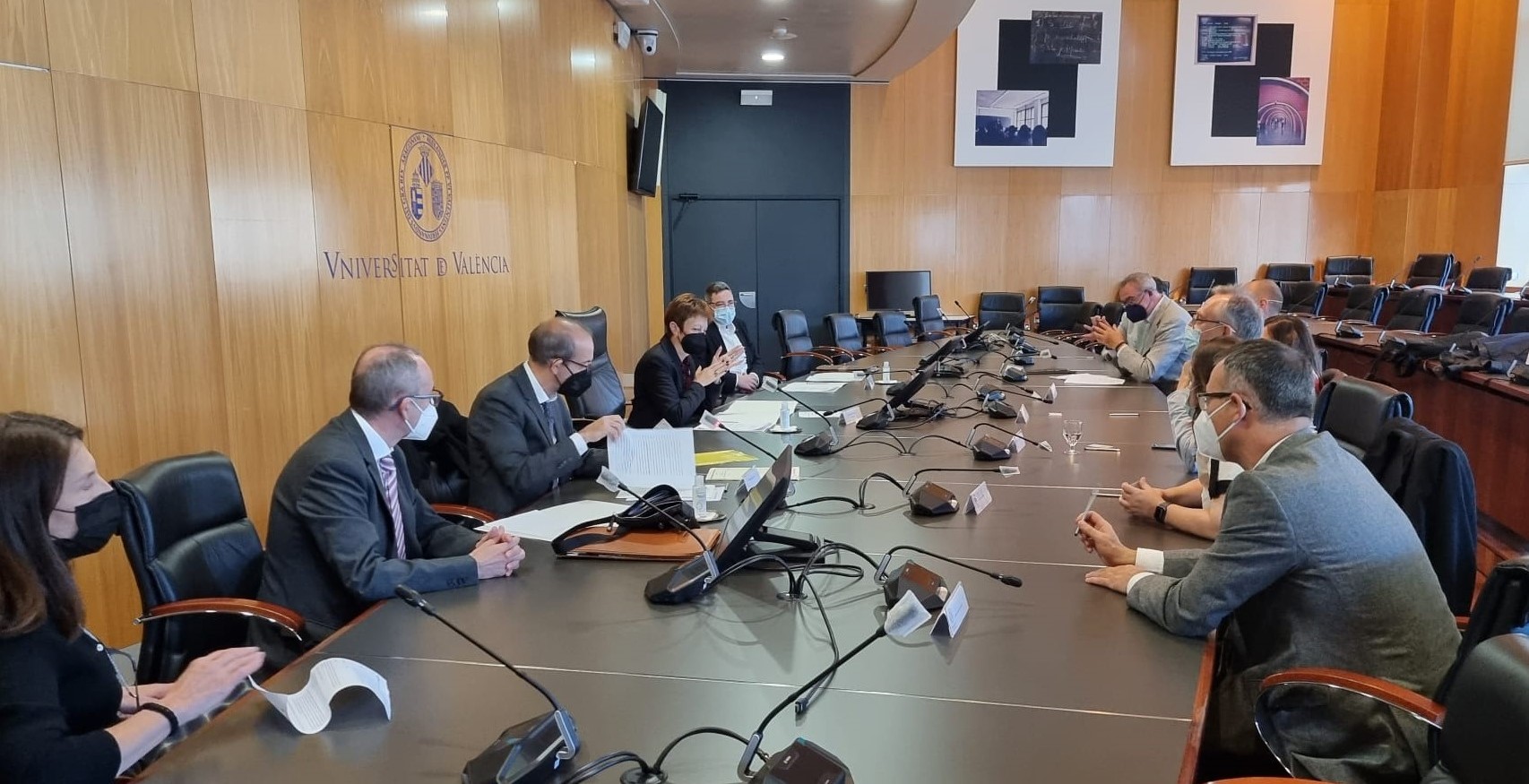The University of Valencia (UV) has just established and recognised as a spin-off the chemical company Porous Material in Action (PMA). Mainly participated by researchers from the Institute of Molecular Science (ICMol) and by the University itself, the company aims to produce MOF-type porous materials, place value on them for their integration into technological applications and make them affordable to the industry.
The rector of the University of Valencia, Maria Vicenta Mestre, and all the partners of the company Porous Material in Action have signed this Monday, November 15, the license agreement of the patent on which the company is based and the support agreement and recognition of the spin-off of the new chemical company that will be located in the Science Park of the academic institution. This is the second business initiative that the UV recognises this year 2021 as a spin-off.
Capitalised mainly by ICMol-UV researchers and by the University itself, PMA aims to develop and commercialise MOF products, processes and services to apply them in sectors such as the storage of useful gases such as green fuels, catalysis, capture of pollutants, supply and purification of water or environmental purification, among others.
“For the University of Valencia it is a pride to participate and recognise business initiatives like this one, which is based on a very cutting edge technology generated in our institution”, comments the rector Maria Vicenta Mestre. “The industry is waiting for the advances that MOF-type materials can bring to sectors as important as the environment or energy; and providing support to this project is a way of fulfilling the mission that every university has of transferring research results to improve the productive fabric of our environment”, she concludes.
Metal Organic Frameworks (MOF) are a family of porous materials –crystalline and flexible– that due to their multiple potentialities are revolutionising the industry in very diverse fields. “What is really interesting about MOFs is their enormous versatility; they are like a chemical LEGO”, comments Carlos Martí-Gastaldo, ICMol researcher and main promoter of the company. “The porosity, flexibility and chemical stability of these materials allow the design of pores with specific sizes and chemical functions, which increase and diversify their properties, which provides many possibilities for the technological development of better and more sustainable products”, he adds.
The creation of PMA derives from the results of a European project –Chemical Engineering of Functional Stable Metal-Organic Frameworks (MOFs): Porous crystals and Thin-film Devices–, led by Martí-Gastaldo, which has generated more than one patent of MOF holder of the Universities of Valencia and Granada. This is the case of MUV-10 (PMA-1000 for commercial names) for the capture and degradation of contaminants in the environment, or of MUV-101 (PMA-3000) for their use in the degradation of insecticides, pesticides, or agents. of chemical warfare, patents such as the one that now the University license in favour of the new spin-off.
Porous Material in Action has the singularity that, in addition to working in the development of more sustainable MOFs and promoting the industry, will act as a platform for the visibility of MOF-like materials and as an accelerator to transfer them to the company, I will provide advice on the integration of materials with enormous potential in technological applications.
“Our first objective is to produce 1 kg of MOF at a reasonable price, so that any company can consider the possibility of innovating with its own products without having to be a giant”, explains Martí-Gastaldo. “In addition to assuming the challenge of producing at an affordable cost, we are committed to making these highly versatile and highly capable materials known to the industry in general, making ourselves available to technology parks and companies that could benefit from the MOFs potential”, he concludes.
The University of Valencia currently has 15 recognised spin-offs related to the sectors of engineering and technology, life sciences, chemical industry and social sciences and humanities, in line with the diversity typical of a general university.


